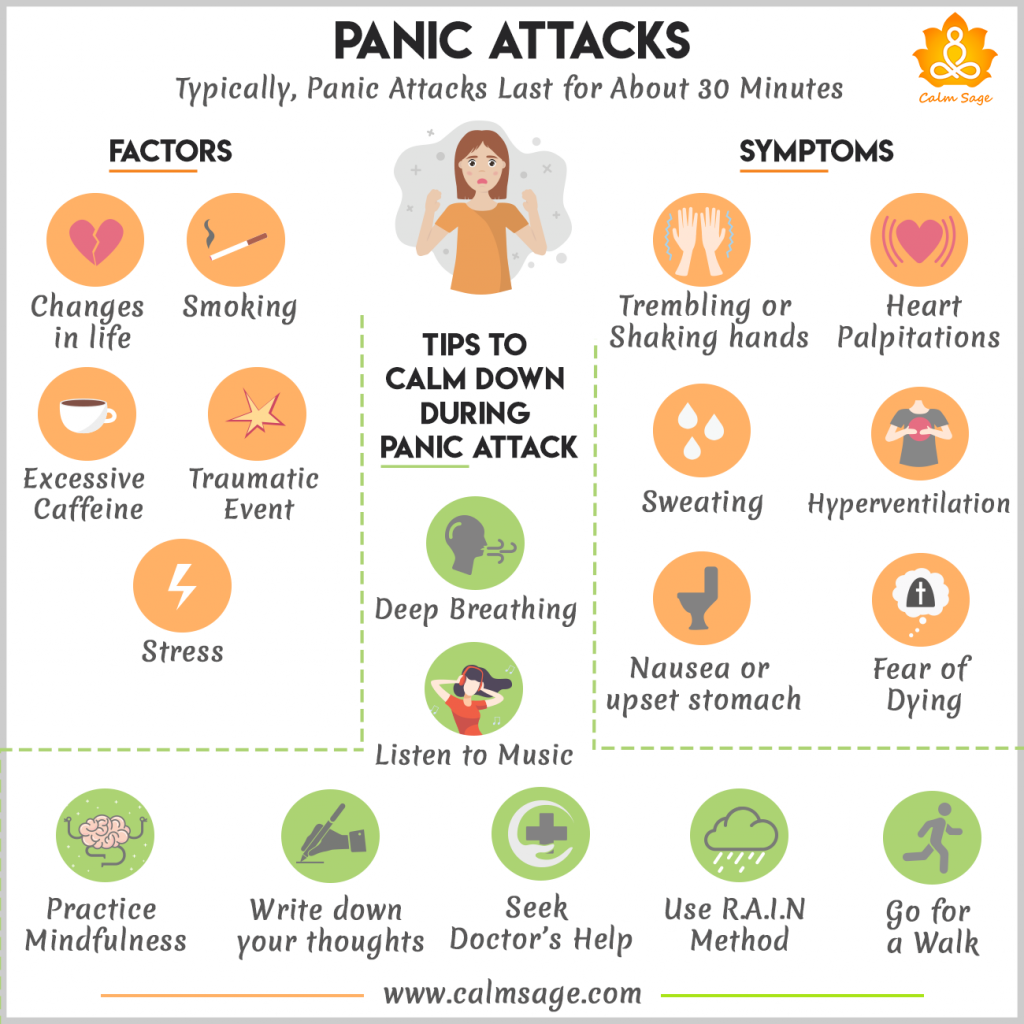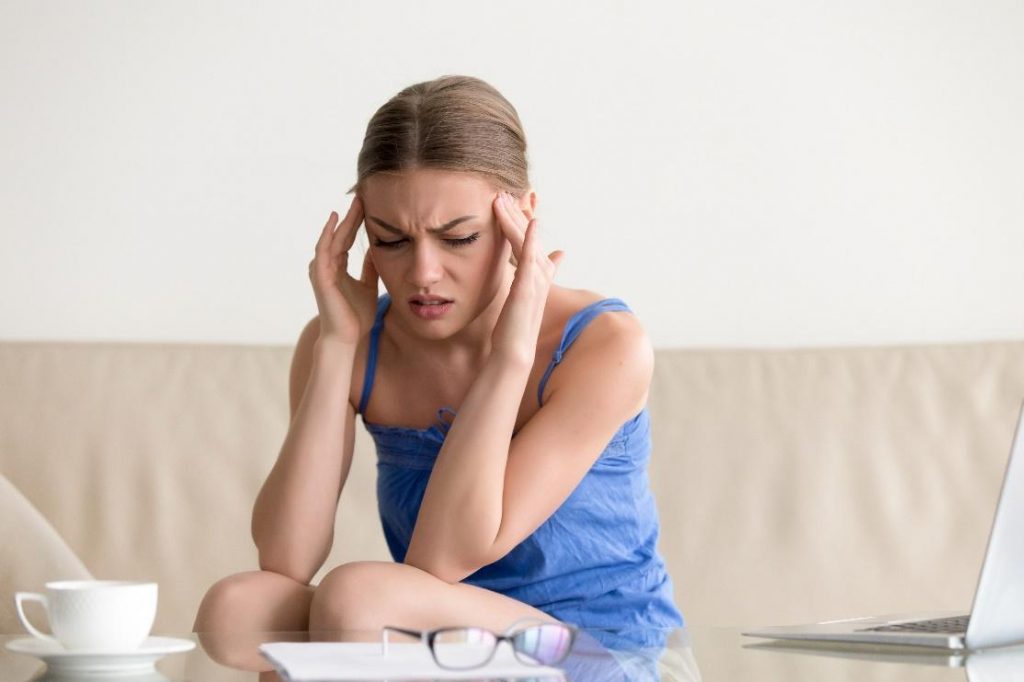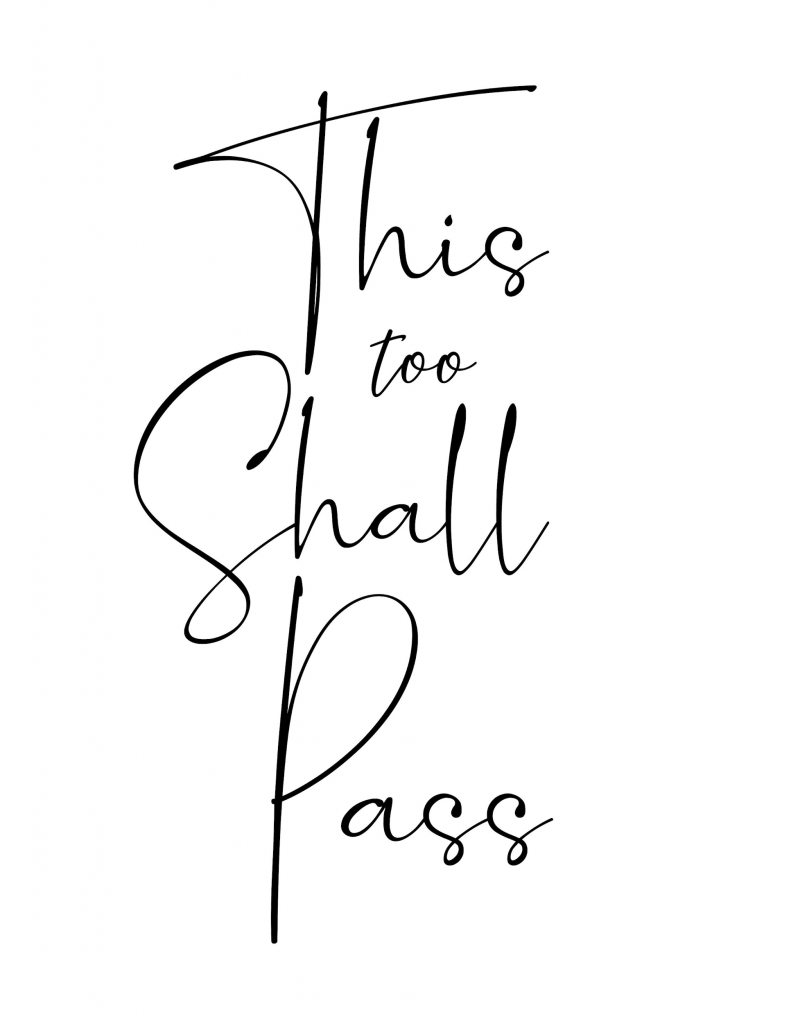COVID19 – Panic Attacks Symptoms and how to deal with them

As coronavirus sickness continues to spread, fear and anxiety raise among many individuals.
About 15-30% of the population experience panic disorder in a given year and surprisingly this has increased over the past few weeks. These attacks are sudden, overpowering and come in a different form. They can affect anyone and the current coronavirus situation is adding up to general anxiety, panic disorder, leading to panic attacks.
With a number of unanswered questions like what if I get the disease, what if I lost my job, what if, what if things are getting worse. An intense wave of fear characterized by its unexpectedness, devastating, restraining intensity is surrounding us. For a lot of people, this situation is overwhelming, leaving them with a feeling of a sudden intense surge of panic, anxiety or breathlessness.
This can be a sign of panic attacks that often strikeout of the blue, without any warning.
When so much is unsure, all our assumptions in life are eaten up, there are chances that we might panic.
Therefore, we need to understand what are the signs of panic attacks and how to deal with them.
Panic Attack Signs and Symptoms:
Signs and symptoms of a panic attack develop abruptly and they reach their peak within 10 minutes lasting not more than 30 minutes. Anyone, anywhere, anytime can face a panic attack.

Symptoms of Panic Attack:
- Hyperventilation
- Sweating
- Trembling hands
- Nausea or upset stomach
- Tingling sensation or numbness
- Cold or Hot Flashes
- Choking feeling
- Feeling detached from surroundings
- Heart Palpitations
- Discomfort
- Fear of losing control, dying
Most symptoms of a panic attack are physical and when these symptoms become severe people end up thinking they are having a heart attack. In fact, most people visit the doctor as they believe it is a life-threating situation. Certainly, it is important to visit a doctor and not neglect signs like chest pain, elevated heart rate, etc. However, most of the times people face these symptoms due to overlooked panic. Therefore, we need to understand the factors responsible for panic attacks.
Factors that May Lead to a Panic Attack:

-
-
- Worrying about a situation, for instance, COVID-19 coronavirus pandemic
- Major stress, workload
- Genetics, family history of panic disorder
- A traumatic event like a serious accident, sexual assault
- Excessive intake of caffeine or smoking
- History of assault or abuse
-
All these and certain other factors can lead to panic attacks. Therefore, to control panic attacks we need to practice certain things.
Self Help Tips to Cope With Panic Attacks:
No matter how powerless you feel about scary panic attacks. It’s important to know you can control them and help yourself.
Here are 11 ways that will help stop a panic attack when you are having one or you feel one is about to come:
1. Understand Panic and Anxiety
Simply understanding or knowing about a situation can go a long way to help distress. Read up on anxiety and how to respond during a panic attack. You will understand what you feel is normal and you aren’t crazy.
2. Deep Breath
While hyperventilating is a symptom of panic attacks deep breathing helps reduce symptoms of a panic attack.

If you can control your breathing, you can easily overcome panic attacks. You can learn some breathing exercises and make deep breathing a habit to deal with situations that can cause panic attacks and worsen the situation.
Take deep breaths in and out through the mouth. Breathe in for a count of four, hold for a second and breathe out for a count of four:
3. Learn to distinguish between a panic attack and a heart attack
Learn the difference between panic attacks and heart attacks. Remind yourself it is temporary & will pass, you’re ok. Focus on something else to take away that fear.
4. Close your eyes

Most times, panic attacks are a result of you being overwhelmed. If you are in an environment with a lot of provocations panic attacks can intensify.
To deal with such a situation close your eyes, try to focus on breathing and block any extra stimuli you will be able to overcome a panic attack.
5. Practice mindfulness

Panic attacks detach you from reality, mindfulness can help ground you in the reality of what’s around you. Focus on physical sensations, something objective this will help realize the fact.
6. Find an object to focus

During panic attacks try focusing on an object as it will help divide attention. You can pick an object and notice its color, size, shape etc. to subside panic symptoms.
7. Use a muscle relaxation technique
Like deep breathing and muscle relaxation also helps stop a panic attack. Starting from your fingers relax one muscle at a time.
8. Picture yourself in a happy place

Think of the quietest, calm, relaxing place. Picture yourself there and try to focus on details as much as possible. This will help deal with panic attacks.
9. Do light exercise

Endorphins keep the blood pumping in the right way. This helps uplift your mood, choose light exercises like walking, swimming to de-stress yourself and find relief from panic attacks.
The exception to this if you are breathing heavily first catch hold of you are breathing.
10. Repeat a positive power mantra

A mantra can help derail a panic attack. A positive word or phrase repeated continuously will help relax, reassure and subside panic attacks. You can use simple mantras like ‘This too shall pass, No need to panic everything will be fine,’ etc. Repeat this in your head until you feel relaxed.
Once your panic attack has subsided, write about what triggered it. This will become a reference and will help understand your triggers.
11. Call Someone

If you feel a panic attack is coming on, give a call to your friend, family member with whom you can share your feelings and feel safe.
Use the R.A.I.N method
RAIN: Recognize, Allow, Investigate and not let it define you. Use this method when you feel a panic attack is coming. This will help fight the fear of the moment.
If nothing of this help and panic attacks occur often consult a doctor for expert advice.
Remember old habits die hard. it will take time to change and create a habit of worrying less. The more you try to suppress, the worse it will get. Worrying cannot control the reduced uncertainties or control the future. There will always be a what-if in life the more we can sit thinking about it more we will be anxious. So, try to follow these points and checkout this anti-panic attack sheet
COVID-19 Anti-Panic Sheet
- I may never contract the disease
- I may be immune
- It may be no worse than a strong cold
- I’ll cope with it
- Eventually, things will return to normal
- It’s a chance for me to take care of others
- It’s a chance to spend more time with family
Recommended Articles:
Why Is Depression More Common In Females? Unveiling The Facts!





















Because of COVID-19 most of the people to much panic but my suggestion dont panic and just do given exercise and deal with such kind of situation